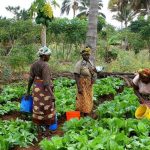Why TikTok Removed 11 Million Violative Videos in Nigeria And Nine African Countries
TikTok has removed 11,887,516 violative videos from nine African countries, including Egypt, Nigeria, South Africa, Algeria, Somalia, Libya, Ethiopia, Sudan and Morocco. This move aims to ensure user...

TikTok has removed 11,887,516 violative videos from nine African countries, including Egypt, Nigeria, South Africa, Algeria, Somalia, Libya, Ethiopia, Sudan and Morocco.
This move aims to ensure user safety through content moderation, including removing videos violating community standards for integrity, advertising, privacy, and security.
The platform confirmed it used automated technology to remove 80% of violative videos this quarter, an increase from 62% a year before with proactive detection reaching a record 98.2%, and the rate of videos restored after removal reduced by over half year-over-year.
Egypt tops the list with 2,754,574 videos removed, followed by Nigeria (2,137,687), Algeria (1,837,202), Somalia (1,380,154), Libya (1,149,855), Ethiopia (702,622), Sudan (665,456), Morocco (645,560), and South Africa (614,406).
According to ITWeb, 143,998 accounts in South Africa were banned for violating rules, with 137,663 accounts removed because the account holder was suspected of being under 13 years old.
TikTok revealed it has implemented additional privacy controls over the past few months in line with global regulations to protect children’s online privacy.
In 2021, the platform reportedly agreed to pay $92 million to settle a class-action lawsuit that alleged the video-sharing social networking service illegally collected some teenage TikTok users’ data.
Recently, TikTok has encountered challenges in Africa over safety concerns. In August 2024, the Egyptian authorities announced plans to implement enhanced mechanisms to monitor content on TikTok to ensure its commitment to Egyptian values. This move comes as some activists and media professionals in the country have called for the platform’s ban.
In April 2024, Kenya also revealed plans to mandate the platform to publish compliance reports every three months as part of its strategy to increase efforts to address its negative effects rather than ban it from the country.
Meanwhile, TikTok has also made some moves to address these challenges. In March 2024, it partnered with the African Union Commission’s Women, Gender, and Youth Directorate (WGYD) to raise awareness of online safety among African youth and parents.
The campaign aims to raise awareness and educate everyone, including youth, parents, and educators, on how to stay safe online, with plans to create content tailored to local languages and cultures to ensure broad relevance and impact.
In its latest move, TikTok has established an African council of internet and information experts to lead its policies on hate speech and disinformation in the Sub-Saharan Africa region.









No Comment! Be the first one.